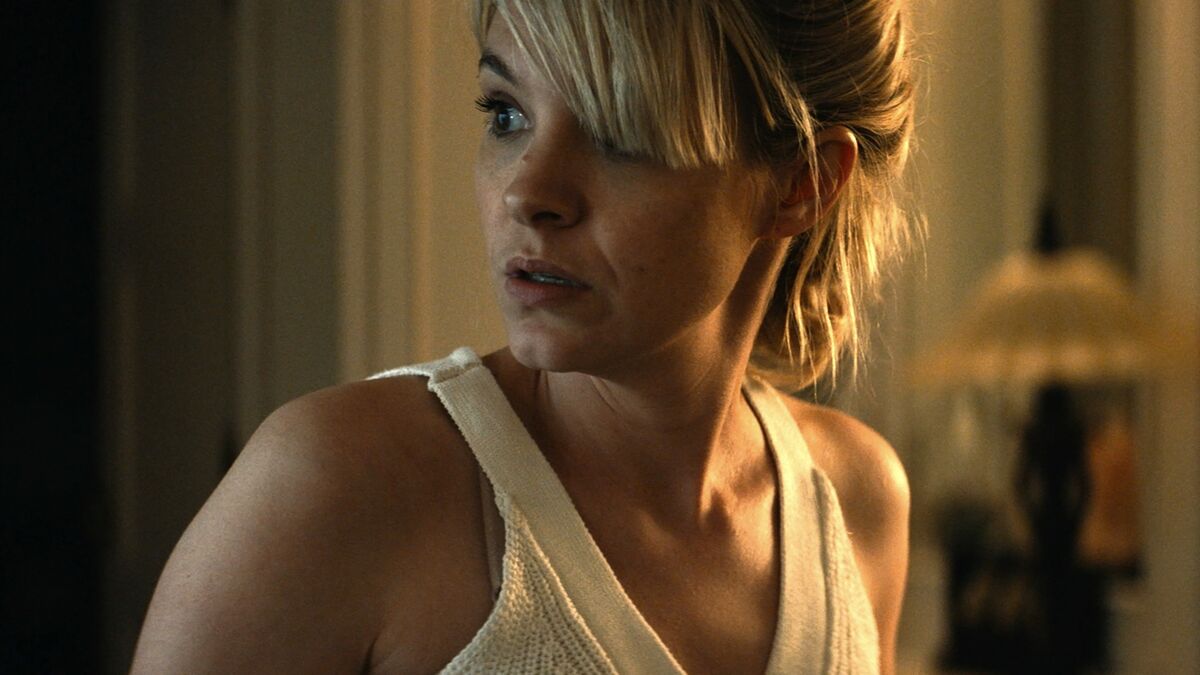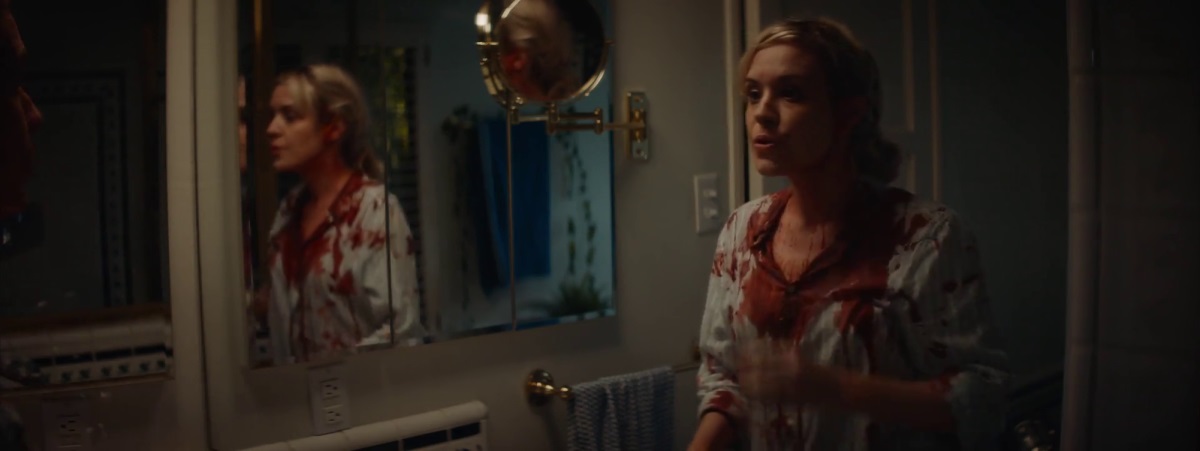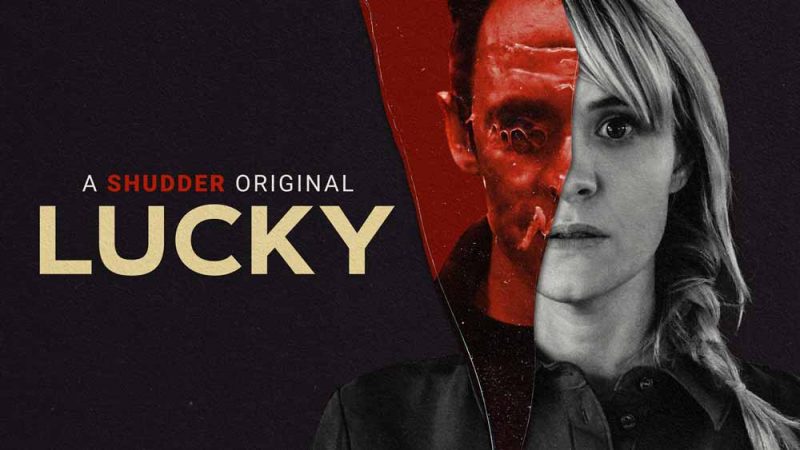The film “Lucky,” directed by Natasha Kermani, caught my attention because it premiered at the South by Southwest festival. Although I found its 75 Metascore to be good, I realized even 75 was too high. Most of the viewers didn’t fully understand what the film was trying to convey, or perhaps they didn’t want to understand. Therefore, I found the given score of 75 to be quite high. In fact, the message the film was trying to convey is straightforward. Although I’m not usually a fan of metaphorical movies, “Lucky” managed to captivate my interest and appreciation by portraying a deep wound in a suffocating manner.
Let’s briefly touch upon the plot… May is stalked by a killer in her home every day. Without exception, every day. Despite reporting to the police that someone is trying to forcefully enter her home, the killer remains uncaught. Realizing that the police are of no help, May decides to solve the problem through brute force. After killing the intruder who returns to her home, May thinks the problem is solved, but the killer reappears the next day. And the day after that. And the day after that. No matter what May does, every day, someone tries to enter her home and kill her.

At the beginning of the film, I thought it was telling a story of a typical home invasion, but my interest in the film solidified when the killer appeared on the second day and subsequent days. Gradually, I noticed that each day had a different theme. No one, except May, remembers what happened the previous day. I wondered if I was watching the delusions of a mentally ill person. However, towards the end of the film, the story’s true meaning becomes evident: Misogyny. Or, as the director puts it, “Daily Misogyny.” As we learn that May is not the only one who has to struggle against killers daily, it becomes clear that the film is a metaphor for misogyny.
The parking lot scene and the film’s final scene are enough to commend Natasha Kermani. Her perspective on reality is highly creative. Women experience male violence every day without exception. They are belittled, demeaned, and objectified in almost every aspect of life, often for different reasons. The majority of men who are considered sympathetic and well-intentioned begin to demean women as soon as they are out of their sight. According to men, women are beings that need to be put in their place. Their place is in the kitchen. They should always be subordinate to men. If a woman has an independent career, she is considered lucky; otherwise, she must be rich by birth. This aspect of luck is emphasized in the film. Throughout the film, May’s achievements are not acknowledged, and it is constantly emphasized that her career, which she achieved through hard work, is merely a stroke of luck.

The film, as described by the director, is like “Twilight Zone” in real life. Horror becomes truly effective when it draws inspiration from real-life situations. Watching monsters from outer space is good and enjoyable, but the things we can encounter in real life are much more terrifying. Unfortunately, women perhaps experience this fear every day. Sometimes, even in first-world countries, simply walking down the street can be unsafe. Just imagine, even something simple like walking, you can feel uneasy and be concerned for your safety. “Lucky” portrays the struggle of women against this fear, which they almost experience on a daily basis. While some can win this battle, others inevitably end up being defeated. And even those who survive are still subjected to being belittled somehow.
The film’s ending is particularly impactful and boldly emphasizes its intended message. May, who has fought tirelessly to unmask her enemy throughout the film, only manages to achieve this opportunity in the final moments. As she removes the mask, we realize that the killer is not just one person. The killer is among us. It could be anyone you know. It could be a friend, someone sitting at the adjacent desk in your workplace, or even someone standing next to you on the subway you encounter on the street. There is one undeniable truth: the killer is undoubtedly male. As I mentioned in the first paragraph, unfortunately, the fact that the film is a metaphorical story was not understood. Or perhaps it was not intended to be understood. Because whether we accept it or not, “Lucky” is not a fictional film; it is the cinematic portrayal of a real and ongoing problem.

Cast & Crew
director: Natasha Kermani
writers: Brea Grant
starring: Brea Grant
USA | 2020 | 83 MINUTES |
